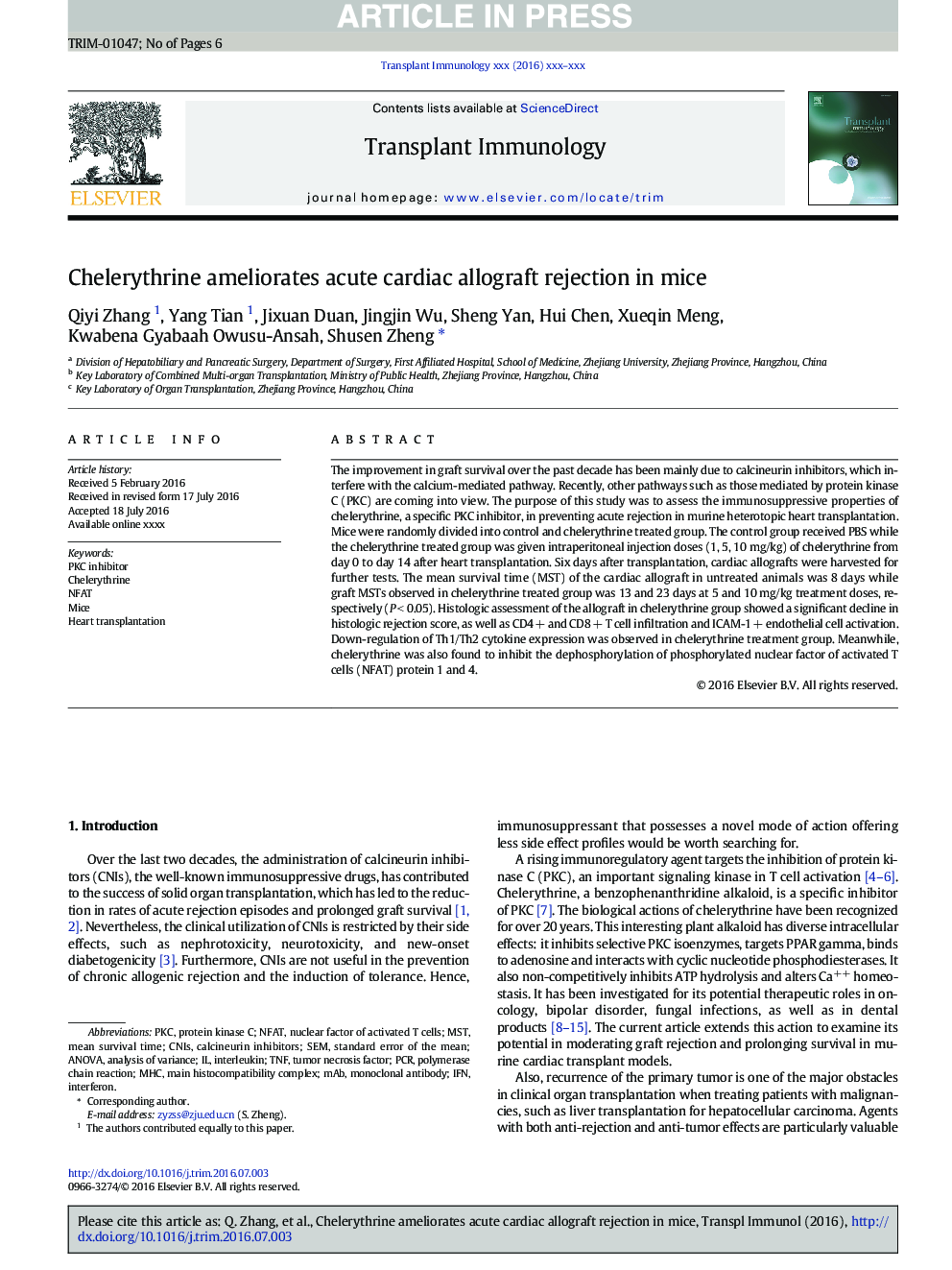| Article ID | Journal | Published Year | Pages | File Type |
|---|---|---|---|---|
| 6125969 | Transplant Immunology | 2016 | 6 Pages |
Abstract
The improvement in graft survival over the past decade has been mainly due to calcineurin inhibitors, which interfere with the calcium-mediated pathway. Recently, other pathways such as those mediated by protein kinase C (PKC) are coming into view. The purpose of this study was to assess the immunosuppressive properties of chelerythrine, a specific PKC inhibitor, in preventing acute rejection in murine heterotopic heart transplantation. Mice were randomly divided into control and chelerythrine treated group. The control group received PBS while the chelerythrine treated group was given intraperitoneal injection doses (1, 5, 10Â mg/kg) of chelerythrine from day 0 to day 14 after heart transplantation. Six days after transplantation, cardiac allografts were harvested for further tests. The mean survival time (MST) of the cardiac allograft in untreated animals was 8Â days while graft MSTs observed in chelerythrine treated group was 13 and 23Â days at 5 and 10Â mg/kg treatment doses, respectively (PÂ <Â 0.05). Histologic assessment of the allograft in chelerythrine group showed a significant decline in histologic rejection score, as well as CD4Â + and CD8Â + T cell infiltration and ICAM-1Â + endothelial cell activation. Down-regulation of Th1/Th2 cytokine expression was observed in chelerythrine treatment group. Meanwhile, chelerythrine was also found to inhibit the dephosphorylation of phosphorylated nuclear factor of activated T cells (NFAT) protein 1 and 4.
Keywords
TNFCNIsPKCmAbNFATMSTMonoclonal antibodyinterferonIFNinterleukinanalysis of varianceANOVAstandard error of the meanNuclear Factor of Activated T Cellstumor necrosis factorMean survival timeMHCSEMCalcineurin inhibitorsPKC inhibitorMicepolymerase chain reactionPCRProtein kinase CHeart transplantationChelerythrine
Related Topics
Life Sciences
Immunology and Microbiology
Immunology
Authors
Qiyi Zhang, Yang Tian, Jixuan Duan, Jingjin Wu, Sheng Yan, Hui Chen, Xueqin Meng, Kwabena Gyabaah Owusu-Ansah, Shusen Zheng,
